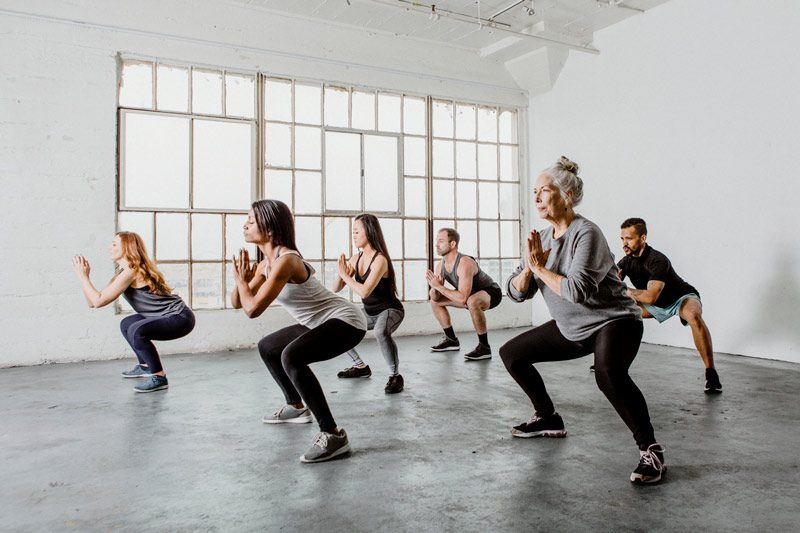When you’re battling mental health disorders such as anxiety or depression, the last thing you want to do is exercise — but it’s actually one of the best and most important steps you can take. Moving your body can do so much good, even beyond burning calories and reducing your risk of disease. This is especially true when it comes to mental health.
Interested in learning more about the mental health benefits of exercise? Here are some examples of what you stand to gain:
- Endorphins: You know that feel-good high you get after being physically active? Exercising prompts your body to generate natural brain chemicals that enhance your sense of well-being. It’s basically the definition of a mood boost! Simply by playing a sport, going for a run, or engaging in whatever kind of exercise you enjoy, you’ll naturally feel a little lighter.
- Distraction: Anyone who battles spiraling, negative thoughts knows what it’s like to feel stuck in that cycle. So, rather than trying to think your way out, try a bit of exercise. Focusing your attention on a physical activity is a great way to distract yourself from your cares and set your mind on a different track.
- Socialization: Interacting and connecting with other people is about more than pleasantries. Positive socializing has been shown to impact a person’s sense of mental well-being. Whether you take a fitness class or play a pick-up basketball game after work, exercise provides a stimulating activity to meet and make relationships with others. This can go a long way toward improving your mental health.
- Confidence: People with mental health conditions often battle discouragement, insecurity, or other issues with self-confidence. Making it a regular practice to exercise and aim for specific goals can show you that you’re strong. It can also make you feel good about your appearance.
- Coping mechanism: It’s all too easy to turn to addictive behaviors to cope with mental illness — but substances such as alcohol may only make your condition worse in the long run. What you need is a better, healthier way to respond to your feelings, and that’s what exercise provides.
If you’re interested in experiencing the brain-boosting perks of exercise, there’s even better news: You can start small. While shooting for 30 minutes of exercise every three to five days a week is a great goal, you’ll still see benefits if you do less than that. Even if you only exercise 10 to 15 minutes at a time, for example, it can boost your mood. Try going for a daily walk or picking up an active hobby a few times a week — the impact will be profound.
For more info, take a look at the accompanying resource, which further outlines the connection between the brain and body — with 10 ways that exercise promotes mental wellness and 10 tips for staying motivated!
About the Author: Dan Borucki is an ISSA Certified Fitness Coach and Personal Trainer at Re|Claim Fitness. He is committed to providing a level of service that is focused on the individual, whatever his or her needs and goals may be. Borucki strives to encourage, support, and challenge his clients to feel stronger, healthier, and more confident.
May Is Mental Health Month 2022
“Back to Basics”
May is Mental Health Month, a time to spread public awareness and education about mental health disorders and reflect on the impact of mental illness on individuals and their families.
The theme of this year’s Mental Health Month is “Back to Basics.” The goal this May is to provide foundational knowledge about mental health and mental health conditions and spread information about what people can do if their mental health is a cause for concern.
It is also a time to recognize and commit to changing the racial and economic inequities in our health care system, particularly with respect to mental health.
www.rtor.org and Laurel House are committed to the advancement of racial equity and social justice, and to making mental health services accessible to all.
Image by www.rawpixel.com
The opinions and views expressed in any guest blog post do not necessarily reflect those of www.rtor.org or its sponsor, Laurel House, Inc. The author and www.rtor.org have no affiliations with any products or services mentioned in the article or linked to therein. Guest Authors may have affiliations to products mentioned or linked to in their author bios.
Recommended for You
- The Truth about Relapse in Addiction Recovery - April 14, 2025
- The Power of Peer Support in Mental Health Recovery - April 10, 2025
- Artificial Intelligence in Anxiety Management: How AI Helps Users Cope with Anxiety Symptoms - April 3, 2025






